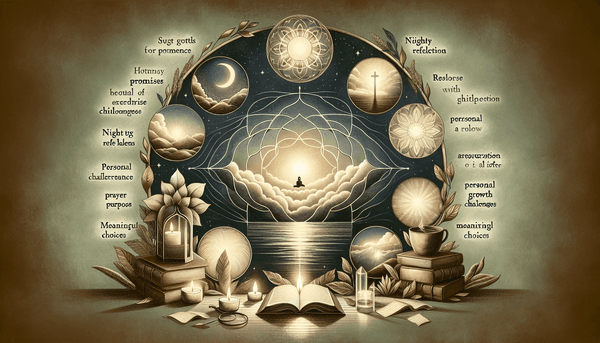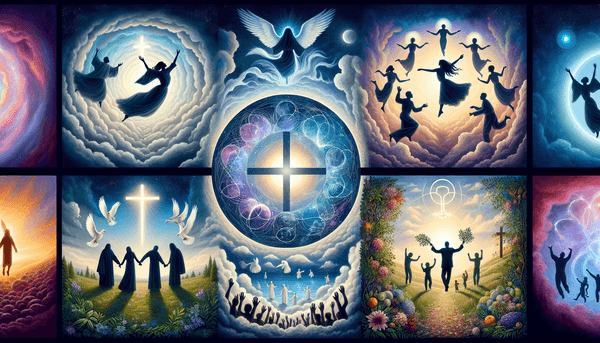Drawing Closer to God
To draw nearer to God is to engage in an intimate dance with the divine, one that is choreographed through acts of prayer, meditation on scripture, and fellowship with other believers. 'Come near to God, and he will come near to you,' we read in James 4:8, a verse that echoes throughout the corridors of the faithful heart. The Bible emphasizes the importance of community in Hebrews 10:24-25, urging believers to 'consider how we may spur one another on toward love and good deeds, not giving up meeting together.' As we confess our sins, as 1 John 1:9 encourages, we find that God is faithful and just, ready to purify us and draw us closer to Himself. The quest for God is also a quest for righteousness, and as Matthew 6:33 assures, as we seek first His kingdom and His righteousness, all other things will be given to us as well.
The Distinction Between Catholicism and Protestantism
The tapestry of Christian faith is woven with various threads, each distinct yet part of a larger design. Among these threads are Catholicism and Protestantism, each holding unique patterns of belief and practice. Protestants emphasize the authority of Scripture as the Word of God and salvation through grace alone, as reflected in Ephesians 2:8-9. The principle of 'sola scriptura,' or the Bible alone as the rule of faith, is a cornerstone of Protestant belief, aligning with passages such as 2 Timothy 3:16-17. Catholics, while also valuing the Bible, place significant emphasis on Church tradition and the authority of the Pope. The unity of the Church as the Body of Christ, as described in 1 Corinthians 12:12-27, is a concept both denominations cherish, despite their differing approaches to governance and doctrine.
FAQ
Q: Did God create hell for Satan and demons?
A: According to traditional Christian doctrine, yes, God created hell for Satan and his demons, as referenced in Matthew 25:41.
Q: How can you draw closer to God?
A: To draw closer to God, it is important to spend time in prayer, study God's Word, the Bible, and seek fellowship with other believers. James 4:8 encourages us to come near to God, and He will come near to us.
Q: What is the difference between Catholic and Protestant beliefs?
A: One key difference is that Protestants emphasize the authority of Scripture and salvation by grace through faith alone (Ephesians 2:8-9), while Catholics also value Church tradition and the authority of the Pope.
Q: How should you treat your partner in a relationship?
A: Partners should be treated with love and respect, as outlined in Ephesians 5:22-25, which compares the relationship between husband and wife to that between Christ and the Church.






